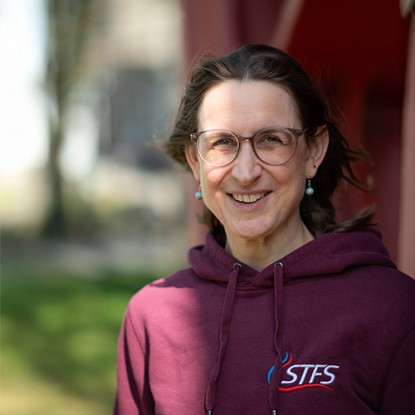Strategic development and onboarding of researchers – inseparable
STFS and RSM Team
21.10.2025
It is a long-standing tradition that our institute Simulation of Reactive Thermo-Fluid Systems (STFS), TU Darmstadt, together with Reaktive Strömungen und Messtechnik (RSM), TU Darmstadt, led by Andreas Dreizler, holds a one-week retreat in the Darmstädter Haus in Kleinwalsertal.

It is a long-standing tradition that our institute Simulation of Reactive Thermo-Fluid Systems (STFS), TU Darmstadt, together with Reaktive Strömungen und Messtechnik (RSM), TU Darmstadt, led by Andreas Dreizler, holds a one-week retreat in the Darmstädter Haus in Kleinwalsertal.
The growing importance of the energy transition and research on emerging energy carriers — such as H₂, NH₃, e-fuels, sustainable aviation fuels, and even metals like iron and aluminum — is also reflected in the steady growth of our teams in recent years.
With many new colleagues joining us, onboarding and integration have become central elements of the retreat. This year, we focused on assessing our current position in research on renewable chemical energy carriers and defining our next scientific goals. We also dedicated sessions to experimental and numerical methods — aiming to deepen understanding across methodological boundaries.
Many of our new team members come from across the world — Europe, Asia, and Australia. I am particularly proud of this dimension of diversity. Its benefits are often discussed, but for diversity to truly succeed, one must invest: thoughtful onboarding, integration, and early contributions to the team all require time and planning. During the retreat, I could see how well the team lives this spirit — despite the initial extra effort.
A fixed part of our agenda also addresses equity and diversity, onboarding, our internal seminar culture, and mental health. We reflect on where we stand and what we can improve. I’m grateful for the openness and constructive discussions — because only that moves us forward.

